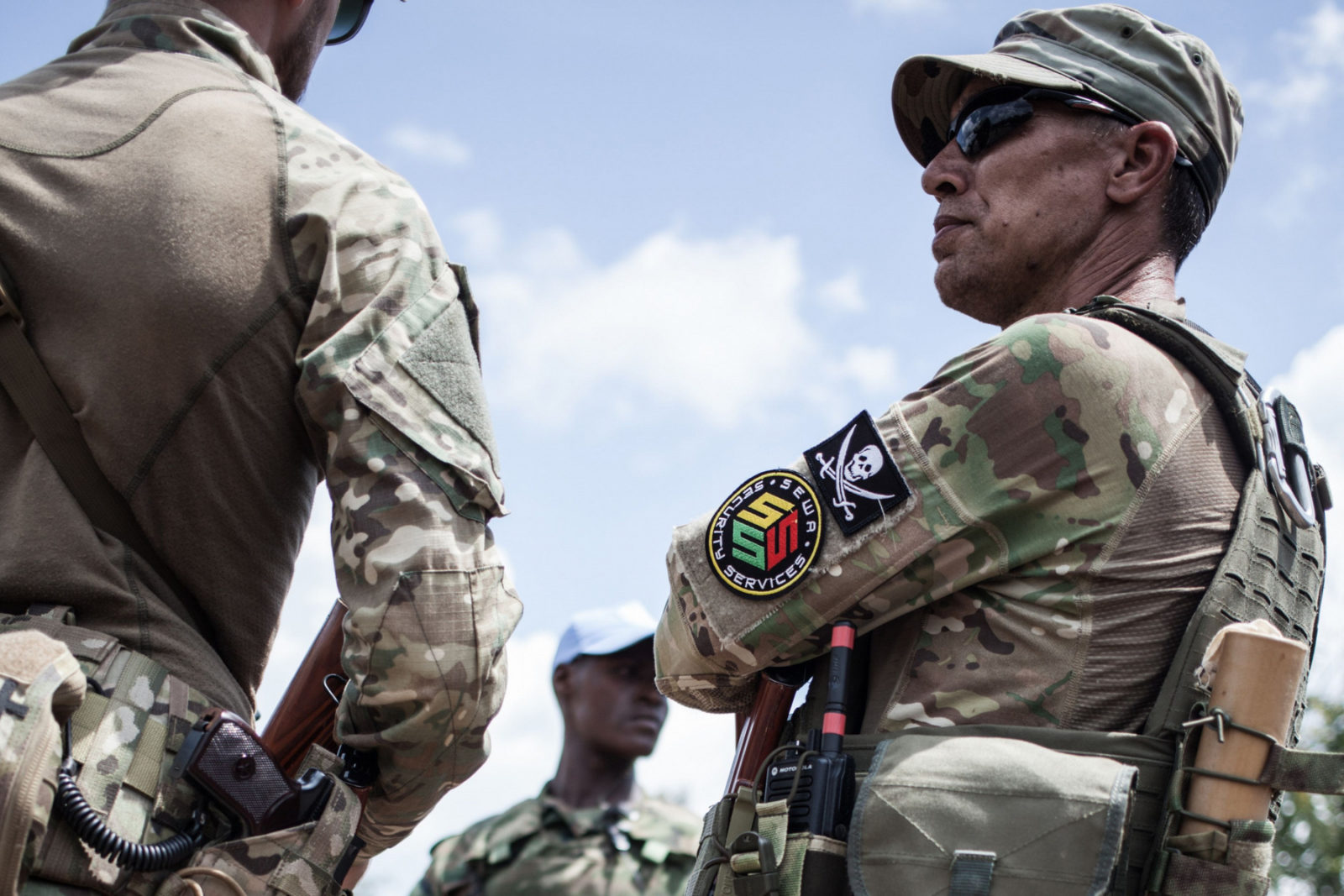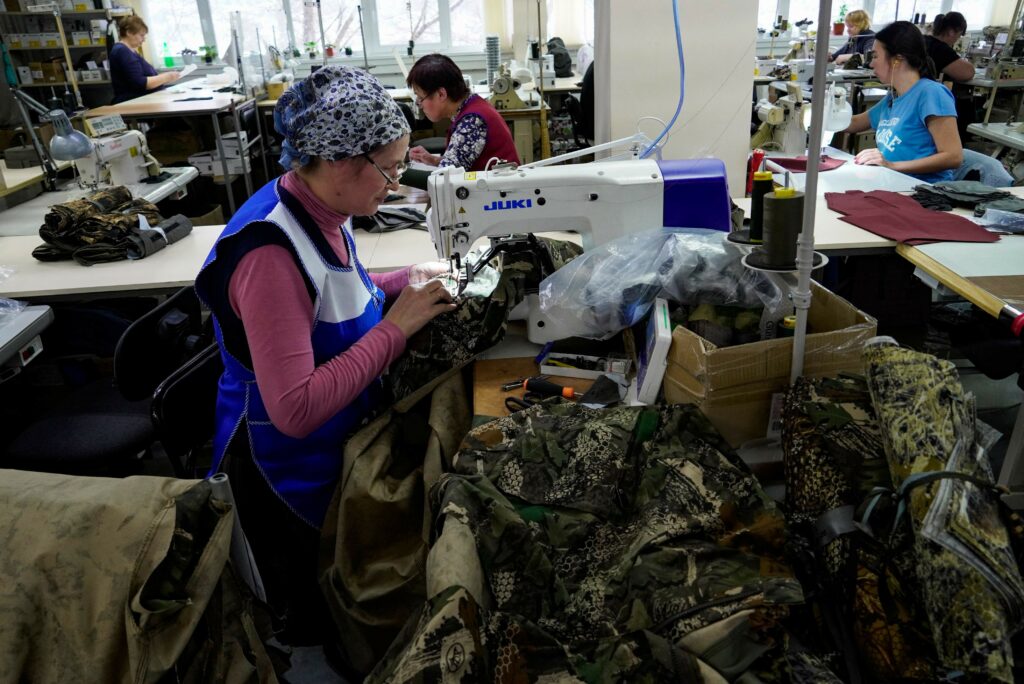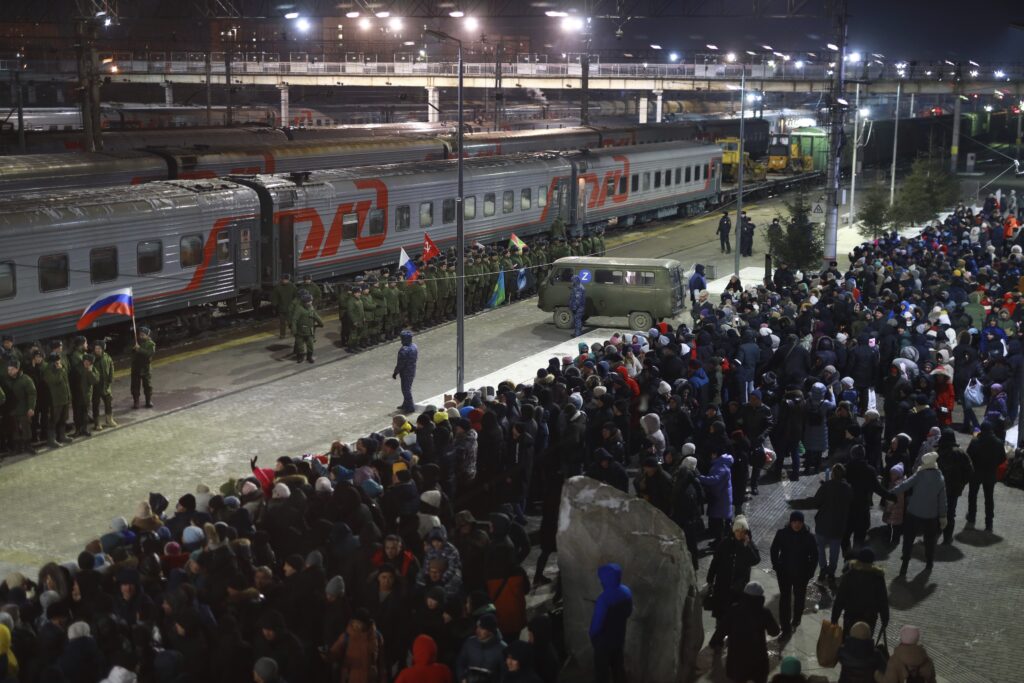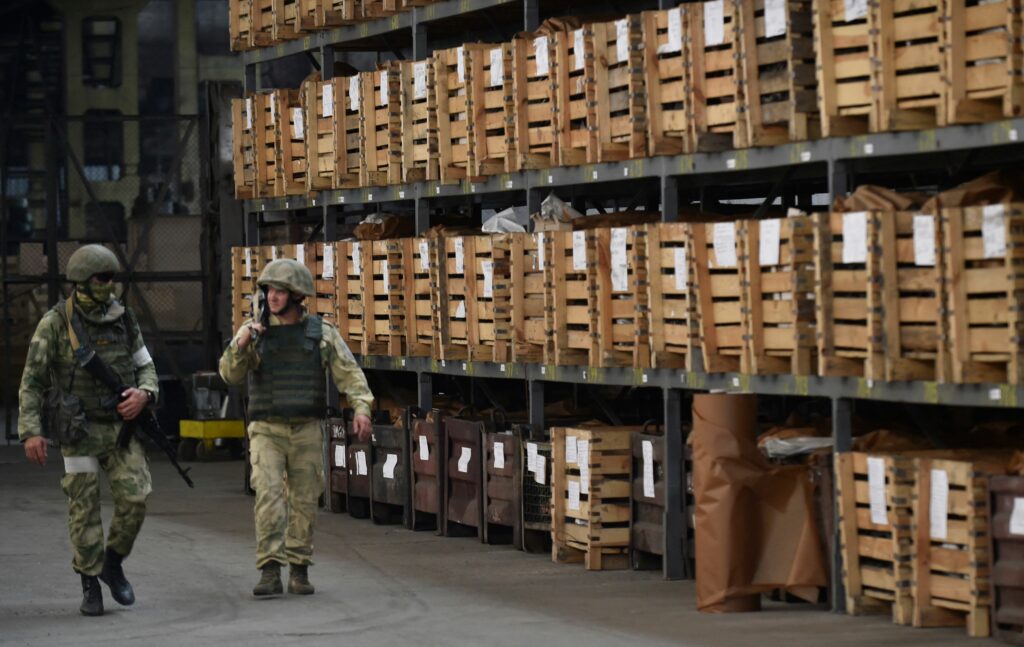These days, it’s become quite difficult to distinguish between Russia’s legal private military contractors (PMCs) which successfully operate overseas, and state-sponsored mercenaries which are disguised as such. While the typical PMC provides security and consulting services where there is perceived to be a high security risk, it doesn’t fight on behalf of its client’s economic or political interests. So it’s little surprise that attempts are currently underway in Russia to draft a special law regulating PMCs, or rather to legalise such mercenaries in Russia. This step is necessary as technically, all such formations are vulnerable to criminal prosecution. Alongside their use in furthering its foreign policy agenda, the Kremlin has also come to see significant domestic advantages to PMCs. Why? Because deep down, the Russian elite are uneasy at the prospect of thousands of alienated young men brandishing weapons; such an elite can only come to distrust its own military.
The Legality of Russia’s Private Military Contractors
Private Military Contractors are not merely personal armies, but an entire business that is clearly regulated by international and domestic law. The field often employs retired military personnel; PMCs are often much better equipped and prepared than some militaries and state security services, making them ideal to deploy to conflict zones. In fact, the security departments of large companies are actually PMCs; these companies secure premises, provide bodyguards for high-profile individuals, and also escort cargo. In many cases, they provide military consulting services for large businesses and states alike, offering training programmes for militaries and special police forces. Modern militaries often find it cheaper to hire PMCs for these services, freeing soldiers and officers from duties not directly related to the field of combat (soldiers and officers which the state spends hundreds of thousands of dollars a year to train.)
Importantly, international law effectively prohibits employees of PMCs from directly participating in hostilities, which would amount to mercenary activity. Moreover, if employees of legally registered PMCs are not also serving members of a national military, then they officially count as civilians (which brings with it all the attendant rights and obligations regarding non-participation in hostilities.) If these employees take part in hostilities, they lose their legal protections if attacked; if they are captured they do not count as prisoners of war and can be convicted, even if they have not committed war crimes. Employees of PMCs operating in conflict zones can only use their weapons to defend facilities or individuals they are tasked with protecting. Of course, reality is much more complicated, thus blurring the line between the legal duties of a PMC instructor and his active participation in a military operation. However in most cases when PMCs have seriously violated these rules, the companies have faced serious political and legal problems (such violations, it must be said, are hardly the norm.)
In this regard, Russia’s legal PMCs are no different from their colleagues in the USA, the UK, or anywhere else in the world. The most famous examples of Russian legal PMCs are the RSB Group and Moran Security Group, which offer security services for facilities and convoys and protect ships from pirates at sea. Another example is the Lukom-A security company which specialises in security for oil facilities and operates in many countries where Lukoil operates (Lukom-A was originally a subsidiary of the Russian energy giant.) While it is clear that PMCs like these are generally not in the business of supplying mercenaries for local wars, one of them does feature in a colourful story: in 2013, figures from the Moran Security Group formed the Slavic Corps, which sent a unit to Syria to fight for Bashar Al-Assad. The mercenaries were defeated in their first battle; back in Russia, those behind the plan were convicted and sentenced to imprisonment.
Of course, there are also some oddballs among Russia’s PMCs. For example, the military company Ferax publishes neither information about its owners nor its address. There is no English language version of the company’s website, which provides just one email address by way of contact details (alongside a form allowing users to send a resumé directly to the website.) According to the website, Ferax employees have fought in conflicts in Afghanistan, Iraq, Kurdistan, and Sri Lanka; their combat approach apparently focuses less on offensive operations and instead takes “a variety of preventative measures.” No mention of Ferax can be found in Russia’s official register of legal entities, making one wonder for what purposes the website was created, or whether the company even exists at all.
In any case, it must be realised that Russia’s legally-registered PMCs are not intended for armed combat, but instead to provide consulting, and logistical, and security services to civil and commercial organisations operating in conflict zones, as well as training for local militaries and police forces. As far as can be judged, these real PMCs are especially concerned about their reputations and are trying to minimise their engagement with countries ruled by toxic regimes.
Mercenaries as a Political Necessity
Russia’s PMCs have made headlines in recent years, and not good ones. Since 2014, the Russian state has perfected a mechanism for recruiting and sending mercenaries to conflict zones. While this scheme may masquerade as the activities of a PMC, it is quite far removed from those of legitimate military contractors. Today, this PMC may be known as the Wagner Group; tomorrow it could take another name. The frontman of this scheme may be the businessman Yevgeny Prigozhin, but tomorrow he could be somebody else. None of that really matters. From the very beginning, it was obvious that no ordinary Russian PMC could send mercenaries en masse to the Central African Republic, Libya, Sudan, Syria, and Ukraine. Investigations into the Wagner Group by The Bell and Bellingcat only give further grounds for such suspicion. But what does Moscow gain from using such a shady mechanism?
The usual answers to this question are usually as follows: the death of a mercenary in battle is not as strongly felt in society as the death of an ordinary solder. Mercenaries are cheaper and can sometimes be even more effective than an expensive regular army. One deeper analysis of the issue considers the use of mercenaries to be part of a broader trend towards privatisation of state resources in the post-Soviet era; conflicts promoted Russia’s leaders to simply “privatise” war and rely on mercenaries. These may be interesting answers, but they don’t explain everything.
Firstly, the death of Russian soldiers and officers does not lead to as much social tension as one might think. That is, if the death toll does not exceed a few hundred, as we saw in Georgia in 2008 and Ukraine in 2014-15. After the Soviet war in Afghanistan and two post-Soviet wars in Chechnya, Russian society has become hardened to these kinds of losses, which numbered in the tens and hundreds, not thousands.
Secondly, the relative cheapness of mercenaries is subsidised by Russian taxpayers. Bear in mind that companies owned by Yevgeny Prigozhin received very lucrative state contracts worth billions to supply food to military bases and schools, and that the quality of this food was sometimes so poor it was considered unhealthy to consume.
As for the “privatisation” thesis, it’s important to remember that while some military duties have been outsourced to mercenaries, the Russian authorities call all the shots in that relationship. So while mercenary soldiers and commanders alike may be fighting for commercial interests, the planning and logistical support for those operations is still in the hands of Russian military intelligence or other departments of the secret services. Everything we know about the issue so far confirms this: from training camps for mercenaries hosted on GRU (Russian foreign military intelligence — ed.) facilities to the use of military planes to evacuate wounded mercenaries from Syria, who are then treated in army hospitals.
So why doesn’t Moscow dispatch its own advisers and regular army units around the globe as readily as it sends mercenaries? In some cases, it does; let us not forget the case of the tank commander from Buryatia who ended up in the Donbas and the captured military intelligence officers in Ukraine, and certainly not the occasional reports of casualties among Russian special operations forces in Syria. At the very least, the Kremlin would have been spared the public scandals which arose around the Wagner Group. Whether it was a military necessity or not, it turns out that the use of mercenaries was a conscious choice for the Russian authorities, and there are two reasons why:
Firstly, the Kremlin has become increasingly aware that there are a significant number of people in Russia today who are capable of bearing arms but have been unable to realise themselves and build stable lives. The story of the Primorskiye Partizany (a group of young men who went on a violent rampage against the police in Russia’s Far East in 2010 — ed.) demonstrated that even small groups of trained and determined people could mount a challenge to local authority. From the government’s point of view, forming units of mercenaries was one way of putting these “good for nothing people” to good use.
Secondly, the Russian authorities distrust their own army. There’s no contradiction here: only a handful of officers are actually involved in directing the mercenaries. On the other hand, if military operations were launched everywhere and involved ground forces, that would be a different matter; a considerable number of the Russian officer corps would have to be involved. Even the Syrian campaign of 2015-17, where the main military operations were conducted by the air force and navy, required the participation of 48,000 Russian soldiers. In comparison, between 2005 and 2007, when the Second Chechen War was still raging, the number of military veterans in Russia increased by 200,000 (according to data from 2013; updated data from 2018 puts the figure at 100,000.) Such figures make sense when considering that it is impossible to just send one battalion of regular troops into combat; additional forces are always required, as well as a regular rotation of personnel. Without the participation of mercenaries, the Kremlin would need tens of thousands of soldiers. That would give increased clout to the top brass of the Russian armed forces, whose generals would then have more influence on foreign and possibly even domestic policy. Such a development would contradict the very logic of the Russian political system.
Moreover, in recent years Russian secret operations have been overseen by former officials from the Federal Protective Service and the FSB. For example, General S. Surovikin, who served his entire life in the land forces and commanded Russian ground troops in Syria, was recently appointed commander-in-chief of the country’s aerospace forces, an appointment completely out of keeping with Russian military tradition. Such practices of rotating personnel tend to hamper the ability of generals to rise through the ranks, as they are newly distanced from the stable support of their loyal subordinates. With that in mind, the Kremlin’s decision to hedge its bets on mercenaries represents yet another attempt to counterbalance the ambitions of Russian military commanders, who seek greater participation in foreign adventures, greater awards for their service, better paycheques, and last but not least, some influence on the Kremlin’s policies.
The Russian authorities have camouflaged their use of overseas mercenaries behind PMCs for several years now. Nevertheless, they still face certain logistical difficulties; the need to overcome them probably explains the authorities’ attempts to formulate a new law on PMCs. A key problem here is likely to be the difficulty in coordinating the actions of official institutions and organisers of mercenaries, as the actions of the latter are still a criminal offence. The fact that the new law has not yet been adopted suggests that Moscow is unable to find a politically palatable solution. In any case, mercenaries are a time-tested way of waging war. Rulers throughout history have resorted to them on many occasions; particularly when their own political position feels uncertain and unstable.










